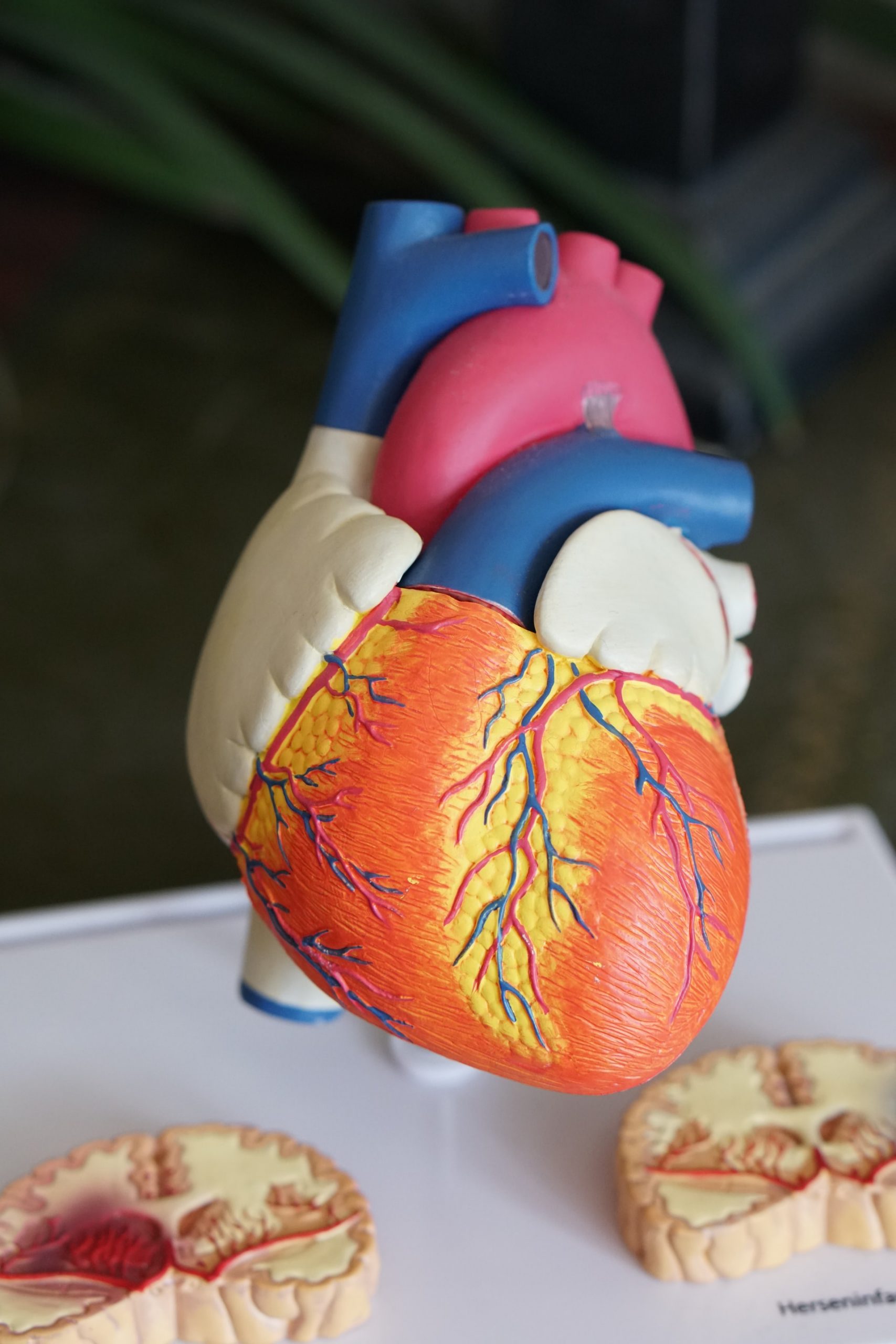In 2012, Ken Chadwick hit rock bottom. He weighed more than ever at 327 pounds and it was a struggle for him to not gain even more weight. One morning, his then wife came into the bedroom while he was putting on his socks. He couldn’t reach his feet due to the girth of his stomach. “I was sitting on the bed and had to lean on the side to pick my leg up and shimmy the sock on,” he said. It was painfully embarrassing for anyone to see him like that.
Chadwick began exercising. He’d walk a mile and be in terrible pain all day. Then he picked up running. His knees killed him. He’d run a mile and have to lie down for an hour to catch his breath. “It was a constant battle to remain at 320 pounds,” he said.
The great grandson of Chilean cattle ranchers, Chadwick’s summers were spent on his grandparents’ ranch. He loved meat and lavish cuisine, which made him a great, creative chef. It led him to pursue a career in food services where he worked at some of the most prestigious universities in the Washington, D.C. area. But his love for everything meat also led to health problems. Because of his food choices, he had to take medication for high cholesterol and blood pressure and experienced severe gastrointestinal issues.
During his first year operating the food services program at American University in Washington, D.C., students told Chadwick they wanted more plant-based meals filled with whole grains, beans, nuts, legumes, vegetables and fruits. Chadwick was motivated by the students and decided to eat a plant-based diet to try to better empathize with his guests who sought healthier and more flavorful alternatives to the standard meat and potatoes. The cafeteria food stations began to swap greasy chicken enchiladas with hearty and spicy bean and rice burritos.
Chadwick also benefitted from adding plant-based options to the cafeteria menu. He began losing weight effortlessly. Within four months he had lost 45 pounds, earning him the nickname “The Incredible Shrinking Man” on campus. By the following semester, his weight was down to 250 and he no longer needed his cholesterol and blood pressure medication. These days, Chadwick weighs 205 pounds. “I haven’t been this skinny since high school,” he shared. He now enjoys boxing sessions that last two and a half hours and can run six miles easily. He favors red lentil pasta, Indian curries and has experienced a whole new world of food. And at 43, he’s in much better shape than he was at 30. Chadwick is one of the many men who are enjoying the benefits of eating more plant-based meals.
Here’s why you should eat more plant-based meals, too.
- Plants are powerful. The average man needs 56 grams of protein daily. Americans tend to vastly overconsume protein, and, surprisingly, even Americans who eat an entirely plant-based diet consume on average 70 percent more protein than they need every day. With that excess animal protein often comes added cholesterol and fat. An increasing number of athletes are fueling their workouts with plants. For instance, New England Patriots quarterback Tom Brady attributes his success in part to a mostly plant-based diet. Ultra-marathoner Rich Roll, Ironman triathlete Brendan Brazier, MMA fighter Mac Danzig, 10-time Olympic gold medalist Carl Lewis, quarterback Joe Namath and 300-pound plant-based linebacker David Carter, just to name a few — have all attested that eating plant-based diets has enhanced their athletic performance, with some finding it helped them improve recovery time, endurance and speed. Building muscle? Don’t fret. Researchers have concluded that plant protein is just as beneficial for muscle mass and strength as animal protein.
- Protect the planet. It’s not surprising meat reduction has received high-profile support from the likes of James Cameron, Leonardo DiCaprio and Arnold Schwarzenegger. Factory farming is hard on the planet. Renowned think tank Chatham House says that the livestock sector is a bigger contributor of greenhouse gas emissions than all forms of transportation combined. Eating meat that comes from factory farmed animals is resource intensive, requiring vast amounts of land, water, oil, fertilizer and other resources. Simply participating in Meatless Monday, taking a holiday from meat one day a week, can help the planet. The Environmental Defense Fund said, “If every American skipped one meal of chicken per week and substituted vegetables and grains…the carbon dioxide savings would be the same as taking more than half a million cars off of U.S. roads.”
- Prevent disease. Eating more plant-based foods and less meat can help you look and feel better. More than one-third of American adults are obese. People who eat less meat and more plants tend to weigh less. In fact, flexitarians — people who eat mostly plant-based foods and meat on occasion — weigh on average 15 pounds less than people who regularly consume meat. According to a massive study, the EPIC-PANACEA, “A decrease in meat consumption may improve weight management.” Plant-based foods are generally lower in calories and fat and higher in fiber, which is associated with lower body mass index. University of Oxford researchers wrote, “An increase in the proportion of plant foods in the diet may help to prevent overweight and obesity.” Eating poultry was associated with the most weight gain, so “chickening out” may be a good thing!
- Animal attraction. The vast majority of meat, eggs and milk produced in the United States come from animals who are raised in intensive-confinement systems that deny them the ability to engage in important natural behaviors like stretching their limbs and grooming themselves. Chickens and pigs are often confined in cages and crates to the point of virtual immobilization. This is standard treatment for animals raised for food in factory farms. Eating less meat and more plant-based meals is an effective way to reduce the number of animals factory farmed and help build a more humane society. And what’s more attractive than sensitivity and compassion?
- Live longer. Some of the leading causes of death in the U.S. – heart disease, cancer, stroke and type 2 diabetes – are food related. In fact, someone in the U.S. dies from heart disease every sixty seconds and it’s the leading killer of American men. Research in Experimental & Clinical Cardiology found that patients suffering from heart disease who had previously tried prescription drugs and undergone stents were able to arrest and reverse it with a plant-based diet. The Journal of the American Medical Association concluded that diets high in animal-based protein were associated with a higher risk of premature death than diets high in plant-based protein, such as beans, whole grains, legumes and nuts, were associated with a lower risk of premature death. Researchers at Mayo Clinic found that following a plant-based diet could add four years to our lives! Want to be around a while? Consider eating more plants and less meat.
There are myriad benefits associated with enjoying more meat-free meals: for our planet, animals and our health. Plus, eating more plant-based meals is a cinch. It can be as simple as swapping out a chicken fajita with a bean burrito or beef with broccoli with vegetable lo mein. And it doesn’t have to be all-or-nothing. Start gradually with a Meatless Monday or try eating all plant-based before 6 p.m., as New York Times bestselling author Mark Bittman suggests. You can find meat-free fare at your favorite fast-food places. Burger King has a delicious, juicy veggie burger at every U.S. location and Chipotle has spicy tofu sofritas that’s as packed with flavor as it is protein.
More people are practicing the Three Rs: “reducing” or “replacing” consumption of animal products, and “refining” our diets by switching to products from sources that adhere to higher animal welfare standards in the interest of being healthy, happy and compassionate. Don’t take it from me; take it from Chadwick who said, “If I tell you the benefits, you won’t believe me, so try it so you can see for yourself.”




